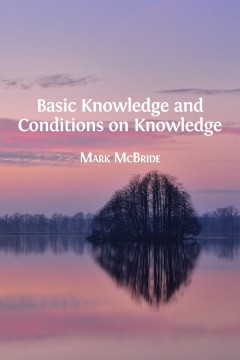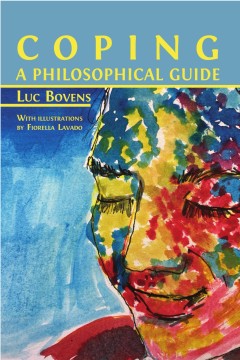Filter by
# Debug Box
/var/www/htdocs/pustaka-digital/lib/SearchEngine/SearchBiblioEngine.php:688 "Search Engine Debug 🔎 🪲"
Engine Type ⚙️: "SLiMS\SearchEngine\SearchBiblioEngine"
SQL ⚙️: array:2 [ "count" => "select count(sb.biblio_id) from search_biblio as sb where sb.opac_hide=0 and (sb.call_number LIKE :callnumber)" "query" => "select sb.biblio_id, sb.title, sb.author, sb.topic, sb.image, sb.isbn_issn, sb.publisher, sb.publish_place, sb.publish_year, sb.labels, sb.input_date, sb.edition, sb.collation, sb.series_title, sb.call_number from search_biblio as sb where sb.opac_hide=0 and (sb.call_number LIKE :callnumber) order by sb.last_update desc limit 10 offset 30" ]
Bind Value ⚒️: array:1 [ ":callnumber" => "1%" ]

Jeremy Bentham on police : the unknown story and what it means for criminology
Jeremy Bentham’s ideas on punishment are famous. Every criminology student learns about Bentham, and every criminologist contends with him, as advocate or opponent. This discourse concerns his ideas about punishment, namely with respect to legislation and the panopticon. Yet, scholars and students are generally ignorant of Bentham’s ideas on police. Hitherto, these ideas have been largely u…
- Edition
- -
- ISBN/ISSN
- 9781787356177
- Collation
- xv, 259 p.
- Series Title
- -
- Call Number
- 192 JER S

Resilience, Adaptive Peacebuilding and Transitional Justice How Societies Re…
Processes of post-war reconstruction, peacebuilding and reconciliation are partly about fostering stability and adaptive capacity across different social systems. Nevertheless, these processes have seldom been expressly discussed within a resilience framework. Similarly, although the goals of transitional justice – among them (re)establishing the rule of law, delivering justice and aiding rec…
- Edition
- -
- ISBN/ISSN
- 9781108919500
- Collation
- xvii, 310 p ; ill
- Series Title
- -
- Call Number
- 155.232 RES J

ALTHUSSER AND EDUCATION : reassessing critical education
Louis Althusser's thinking laid the groundwork for critical educational theory, yet it is often misunderstood in critical pedagogy, sociology of education, and related fields. In this open access book, David I. Backer reexamines Althusser’s educational theory, specifically the claim that education is the most powerful ideological state apparatus in modern capitalist societies. He then present…
- Edition
- 3
- ISBN/ISSN
- 9781350101500
- Collation
- ix, 228p.
- Series Title
- -
- Call Number
- 194 ALT b

Happiness and utility : essays presented to Frederick Rosen
Happiness and Utility brings together experts on utilitarianism to explore the concept of happiness within the utilitarian tradition, situating it in earlier eighteenth-century thinkers and working through some of its developments at the end of the nineteenth and beginning of the twentieth centuries. Drawing on a range of philosophical and historical approaches to the study of the central idea …
- Edition
- -
- ISBN/ISSN
- 9781787350489
- Collation
- xiv, 334 p.
- Series Title
- -
- Call Number
- 171.5 HAP G

Normative Reasons : Between Reasoning and Explanation
Reasons matter greatly to us in both ordinary and theoretical contexts, being connected to two fundamental normative concerns: figuring out what we should do and what attitudes to have, and understanding the duties and responsibilities that apply to us. This book introduces and critiques most of the contemporary theories of normative reasons considerations that speak in favor of an action, beli…
- Edition
- -
- ISBN/ISSN
- 9781009076012
- Collation
- ix, 254 p
- Series Title
- -
- Call Number
- 160 NOR

Basic knowledge and conditions on knowledge
How do we know what we know? In this stimulating and rigorous book, Mark McBride explores two sets of issues in contemporary epistemology: the problems that warrant transmission poses for the category of basic knowledge; and the status of conclusive reasons, sensitivity, and safety as conditions that are necessary for knowledge. To have basic knowledge is to know (have justification for) some …
- Edition
- -
- ISBN/ISSN
- 9781783742851
- Collation
- vii, 228p.
- Series Title
- -
- Call Number
- 121 MAR b

Coping : a philosophical guide
Coping and Philosophy is a collection of philosophical essays on how we deal with life’s challenges. We hope for better times, but what is hope and is it a good thing to hope? How do we look back and make sense of our lives in the face of death? What is the nature of love and how do we deal with its hardships? What makes for a genuine apology and is there too much or too little apologizing in…
- Edition
- -
- ISBN/ISSN
- 9781800642805
- Collation
- 158 p. ; ill.
- Series Title
- -
- Call Number
- 155.24 BOV c

The atheist's bible : diderot's "Éléments de physiologie"
‘Love is harder to explain than hunger, for a piece of fruit does not feel the desire to be eaten’: Denis Diderot’s Éléments de physiologie presents a world in flux, turning on the relationship between man, matter and mind. In this late work, Diderot delves playfully into the relationship between bodily sensation, emotion and perception, and asks his readers what it means to be human in…
- Edition
- -
- ISBN/ISSN
- 9781783748983
- Collation
- ix, 421p. : ill.
- Series Title
- -
- Call Number
- 146.3 WAR t

Mary Warnock : ethics, education and public policy in post-war Britain
- Edition
- -
- ISBN/ISSN
- 9781800643406
- Collation
- viii, 350p. ; ill.
- Series Title
- -
- Call Number
- 192 GRA m
- Edition
- -
- ISBN/ISSN
- 9781800643406
- Collation
- viii, 350p. ; ill.
- Series Title
- -
- Call Number
- 192 GRA m

Performing deception : learning, skill and the art of conjuring
In Performing Deception, Brian Rappert reconstructs the practice of entertainment magic by analysing it through the lens of perception, deception and learning, as he goes about studying conjuring himself. Through this novel meditation on reasoning and skill, Rappert elevates magic from the undertaking of mere trickery to an art that offers the basis for rethinking our possibilities for acting i…
- Edition
- -
- ISBN/ISSN
- 9781800646926
- Collation
- xiii, 195p. : ill.
- Series Title
- -
- Call Number
- 131 BRI p
 Computer Science, Information & General Works
Computer Science, Information & General Works  Philosophy & Psychology
Philosophy & Psychology  Religion
Religion  Social Sciences
Social Sciences  Language
Language  Pure Science
Pure Science  Applied Sciences
Applied Sciences  Art & Recreation
Art & Recreation  Literature
Literature  History & Geography
History & Geography